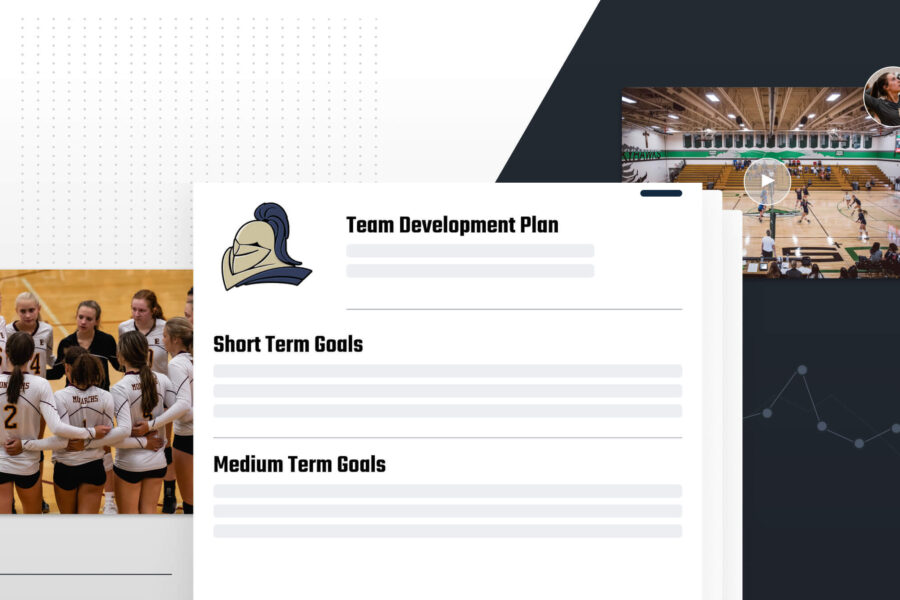Your Guide to Evaluating Your Volleyball Team

Social media, professional development and assessments are all key to your team and club. Here’s the complete guide to mastering each.
Evaluate Your Players
Volleyball is a team sport, but players still need to perform individually. You need hitters that make smart choices at the net, setters that spread the ball well, and defensive specialists who nail passes when it’s 23-all. But you also need players with intangible qualities—positive attitudes, good work ethic, body language, etc. So take a deep dive into each of your players’ performance. Then schedule one-on-one virtual meetings to go over it.
Here are a few templates that hit on all the important qualities:
Stat Your Film
While we’re on the topic of team evaluation, stats are a great way to objectively see how your team is performing. After all, numbers don’t lie. So if stats and reports aren’t already part of your review process, use this extra time to incorporate them.
It’s easy to add tags to matches already on Hudl. More of a visual learner? Check out this step-by-step video to see how it’s done. Or if you have Hudl Assist, double-check all your matches have been sent to our analysts (and send them if they haven’t).
Once your matches are tagged, dig into your team’s performance using Hudl’s comprehensive reports. See basic and advanced stats like blocks, kills and pass quality rating in the stats report, or look at how your team’s hitting percentage tracks over time in the trends report. And you’ll definitely want to use the attack tendencies report to discover your players’ hitting strengths.
Market Your Club
Success in the club circuit is defined by identifying, recruiting and developing talented players, which in turn attracts more skilled athletes to your team. To keep your club top-of-mind for players during tryouts, use these marketing tactics. (Don’t worry, you don’t need a business degree to implement them.)
- Learn how to improve your site’s SEO, create more content and showcase player and parent testimonials.
- See how event and team sponsorships can help raise awareness of your club and create connections.
- Grow your club’s brand and get your players noticed with Hudl.
- Give your club athletes college recruitment opportunities with video.
The most important (and free) investment you can make? Meeting players where they are. That means using social media. Try posting player highlights, club events, travel opportunities and team accomplishments to your club’s social media accounts to attract new talent.
Player assessments, marketing and professional development might seem like a lot of work, but you’ll be glad you took the time to get your house in order once you’re back in the game. For more team evaluation ideas and resources, check out the Remote Coaching Guide.

